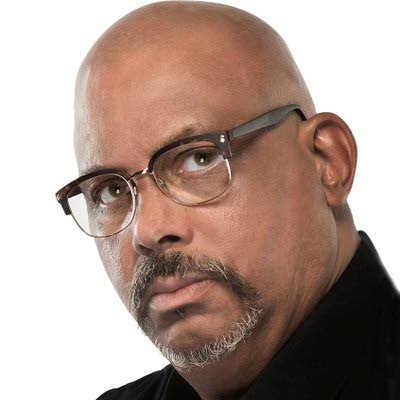Carnival creators contemplate AI

BitDepth#1426
Mark Lyndersay
AT A symposium hosted by Queen's Hall on September 18, nine Carnival or Carnival-adjacent practitioners and two technology experts discussed the impact of artificial intelligence (AI) on two panels.
One of those experts, Keith Laban, considered the implications of source bias because of how AI gathers information.
"An AI system is trained on data," Laban said.
"The latest open-source data set was created from a machine-learning model called Falcon. It was taught using a system of 180 billion parameters. They train (the models) using all text data from the internet. Probably some from social media, bought some from Meta, the internet.
"These data sets are what you use to train the various models, so the main advancement in AI that we are all benefiting from right now is in the area of large language models and diffusion models. If you have biased data going in, then you have biased data in ChatGPT. If there is a particular ethical slant or political slant with respect to the bias, with garbage in, you get garbage out.
"Then there is the concept of hallucinations. The AI system has a tendency to make up statements at times and scientists still cannot figure out why it does that. It will seem that it knows and states facts as if they are real, but it is just making it up."
Rayshawn Pierre-Kerr regarded the new reality of image creation with concern.
"If you want to generate a brand new image, AI will recreate a new image that does not exist but (is derived from) live images from the internet that were taken by photographers who would have spent money (to create them), including photographs that are protected by copyright law.
"You feed it to the AI and it produces the picture. Who benefits and who loses? I also feel there is a potential that AI will erode the beauty and the magic of collaborative community creativity. There is something that happens when people come into a space, and they are workshopping and throwing around ideas.
"There is a certain kind of magic that only exists when human beings come together. Why do I need to come into a room with 20 people if I can generate the idea in two minutes? So we're talking about ethics, but we're also talking about the loss of core communal creative values."
Musician and producer Carl "Beaver" Henderson argued that AI is just a tool.
"At the end of the day, we are humans," Henderson said.
"We run the game. If we get lazy and complacent and sit back and let AI do our exams, our research, our productions, our creativity, then all today's fears will become a reality. AI is not your friend or your best friend. It is a tool like anything else.
"What I've seen in my industry is a lot of young musicians, engineers, producers – because these tools are available now – they try to create a product. I can go into the studio with an artist. He can't sing to buy Crix in the morning, but when I'm finished with the product, he will give Machel and Kes a run for their money. I will use all the tools of AI autotune to make him the greatest thing ever.
"Then, I put them on stage in Queen's Hall and I remove all those things. He has no knowledge of how to sing. He has no craft. His business crashes immediately.
"You still are coming back to the human side. The development of craft, the knowledge, the education, it all comes back to the things that a human has to do to be successful.
"Our local stars who are now international stars, Machel, Kes, Bunji, they have developed their craft over the years. Some young artists and producers now want to take a little shortcut. They do not develop their singing ability, their playing ability, their production ability."
In the symposium's second panel, Alvern Porter, a Carnival entrepreneur, worried that there is a paucity of information about Trinidad Carnival available on the internet, affecting the value of large language models for regional users.
"Trinidad is not a digital country," Porter said.
"When you land in Trinidad, you still fill out the landing card and where that information goes, nobody knows. Jamaica digitised their landing card. So now when you go to Jamaica, you can complete the landing card 30 days before getting to Jamaica. Your information is there.
"Where's the information for Tribe from ten years ago? Where's the information about people like Wayne Berkeley who have passed on? We don't have that information."
Mark Lyndersay is the editor of technewstt.com. An expanded version of this column can be found there


Comments
"Carnival creators contemplate AI"